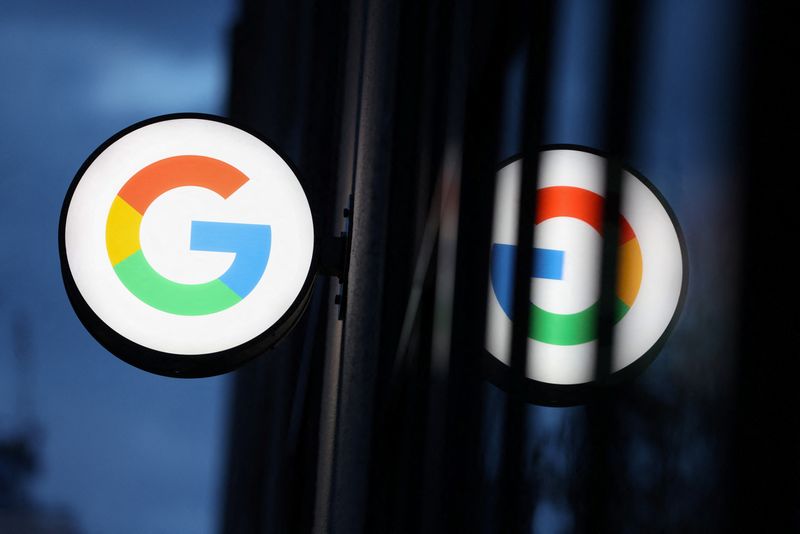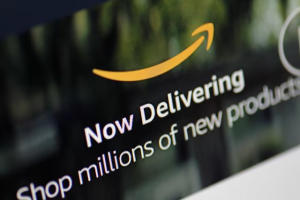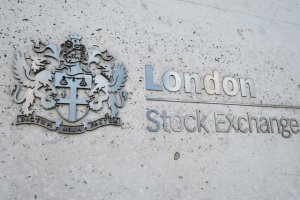As Alphabet (NASDAQ:GOOGL) Inc. prepares to report quarterly earnings, analysts at Bernstein are posing a pivotal question, Could the tech giant’s greatest challenges ultimately become its biggest opportunity?
In a recent note, Bernstein analysts led by Mark Shmulik maintained a market-perform rating on Alphabet, the parent company of Google, while lowering the price target to $165 per share from $200.
The new target implies a modest upside of about 9%, but the brokerage says this moment is about more than earnings. It could mark a turning point in the company’s trajectory.
Alphabet is navigating a complex landscape that includes rising tariffs, recession concerns, regulatory scrutiny and the disruptive impact of artificial intelligence on its core search business.
Bernstein argues that these challenges may serve as a catalyst for long-overdue changes, such as improved operational discipline and a clearer product strategy.
For fiscal year 2024, Alphabet reported revenue of $350 billion. Bernstein projects that to grow to $382 billion in 2025 and $423 billion in 2026, reflecting a compound annual growth rate of 10%.
Earnings before interest, taxes, depreciation and amortization are expected to increase from $127.7 billion in 2024 to $158.4 billion by 2026, with margins remaining in the high 30s. Adjusted earnings per share are projected to rise from $9.82 in 2024 to $12.10 in 2026.
However, Bernstein revised its 2025 revenue estimate downward by 2% and cut its earnings forecast by 3%, citing weakness in advertising, particularly at YouTube and in the broader ad network. These areas are more exposed to brand advertising and macroeconomic downturns.
Alphabet now trades at 17.2 times estimated 2025 earnings, or 14 times on an adjusted basis, a discount to both its historical average and the broader S&P 500.
Bernstein’s valuation combines a 13-times enterprise value-to-EBIT multiple and a discounted cash flow model, using a 9% weighted average cost of capital and 2.5% terminal growth.
That analysis yields a per-share value range of $102 to $181, depending on the scenario, from regulatory breakdown to business-as-usual.
The brokerage outlines key risks including a bloated workforce, a fragmented AI strategy and mounting legal challenges in both the United States and Europe.
Ongoing cases involving the ad tech business and the Google Play Store are drawing comparisons to the antitrust challenges faced by Microsoft (NASDAQ:MSFT) in the early 2000s.
Google’s AI efforts, spanning projects like Gemini, NotebookLM and the now-defunct Pixie, have lacked a unified direction, while competitors like OpenAI have gained ground with more focused offerings such as ChatGPT.
Despite the risks, Bernstein sees a potential upside. If broader macroeconomic conditions deteriorate and industry layoffs accelerate, Alphabet may be forced to implement cost-cutting measures it has long deferred.
The brokerage suggests that a renewed focus on efficiency and integration of AI across Google’s top apps could boost productivity by 20%.
In a scenario where regulatory rulings lead to divestitures or limits on paid distribution, Google could reallocate resources toward its core platforms and shift from a search-first model to an AI-first approach.
One idea floated by Bernstein: Use the company’s $36 billion annual traffic acquisition cost to distribute Pixel phones for free, creating deeper integration and loyalty during a downturn.
Google’s exposure to China-related ad revenue is relatively limited at just 5%, compared to 6% at Meta Platforms Inc (NASDAQ:META).
Still, the company is not immune to global shocks. A recession or escalation in tariffs could reduce search advertising growth by as much as 3 percentage points, according to Bernstein’s analysis.
Although Google Search is seen as a lower-funnel, more resilient ad product, it still relies on commercial queries.
During downturns, consumer intent may weaken, leading to reduced search volume and lower ad revenue.
Google Cloud continues to show strength, benefiting from price increases in Workspace and incremental gains in enterprise IT spending.
New chief financial officer Anat Ashkenazi has emphasized a commitment to cost control, with layoffs underway in sales and marketing.
Bernstein places Alphabet in what it calls the “too hard” category, where uncertainty around regulation, macroeconomic pressures and AI competition makes it difficult to take a definitive position.
Still, the revised price target of $165 reflects a split between a downside floor of $140 per share and an upside of $180, based on a 2026 price-to-earnings multiple of 17.













